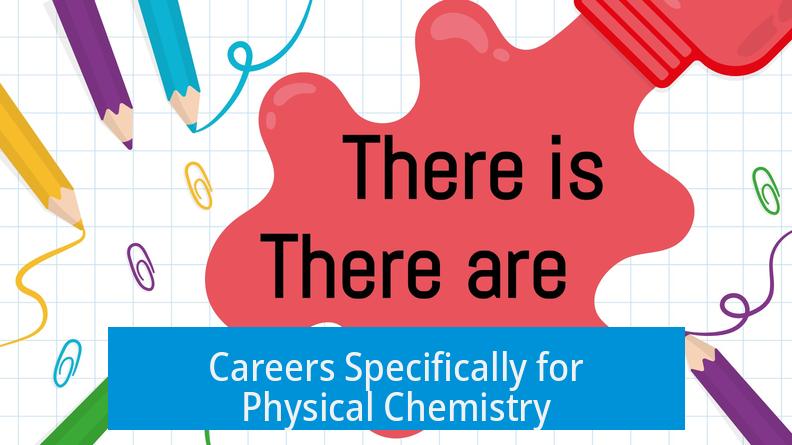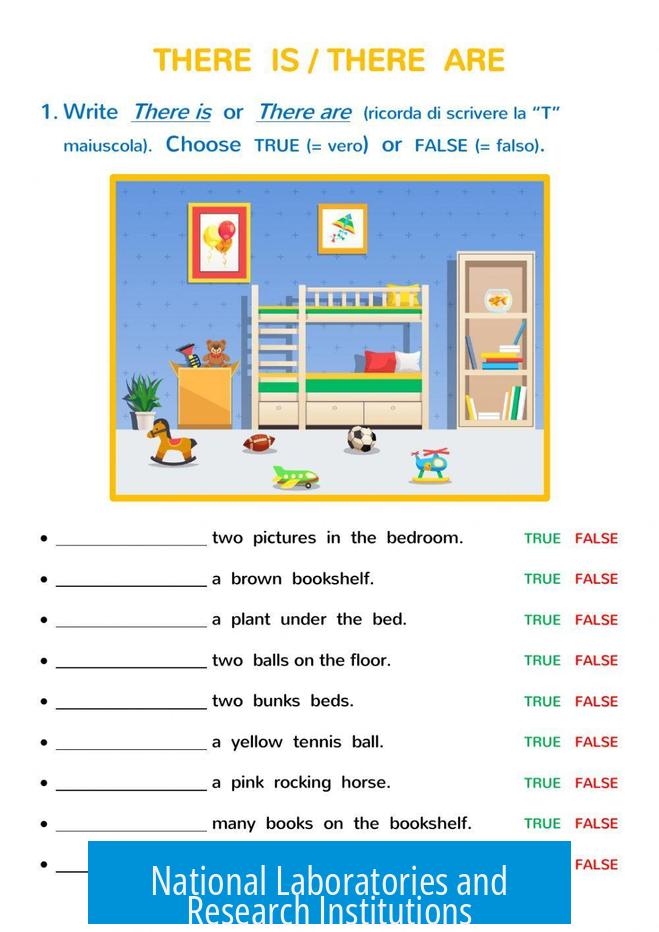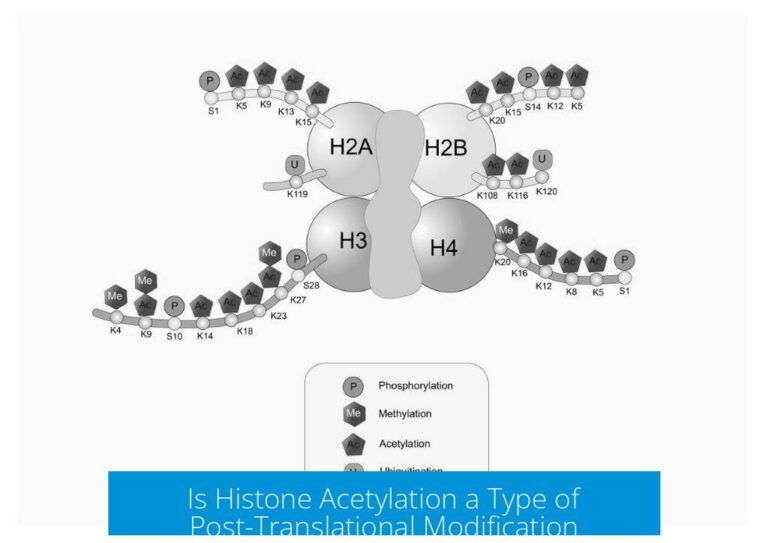Careers Specifically for Physical Chemistry

Physical chemistry offers a diverse range of career options, though specific job titles like “physical chemist” are less common. Instead, professionals often find roles in research, industry, teaching, and interdisciplinary fields that leverage their expertise.
Teaching Positions

Physical chemists frequently pursue academic careers. Teaching physical chemistry at colleges and universities is a natural fit. These roles involve delivering lectures, guiding research, and mentoring students. Teaching positions require strong subject knowledge and communication skills.
National Laboratories and Research Institutions

National laboratories provide substantial opportunities, especially in the US, for physical chemists. These labs conduct cutting-edge research in energy, materials science, and environmental chemistry. Specialized roles include working as beam scientists at synchrotrons or engaging in atomic layer deposition (ALD) studies.
Industry Careers: General and Specific Roles

Physical chemists often occupy versatile positions within industry:
- Research and Development (R&D) roles, especially in pharmaceuticals, materials, and fuels.
- Instrument development and maintenance for devices like NMRs, HPLCs, GCs, and lasers.
- Specialized tasks, such as surface sciences related to semiconductor manufacturing.
- Computational tasks involving data science and IT applications.
- Formulation work in big pharmaceutical companies.
- Air force-related projects, such as jet fuel development.
Physical chemists bring strong skills in chemistry, mathematics, and instrumentation to these roles.
Overlap with Other Fields and Job Titles
Many physical chemists work under titles outside of their specific discipline area:
- Engineers or chemical engineers often perform tasks requiring physical chemistry knowledge.
- Roles in catalysis, materials science, spectroscopy, nanofabrication, and numerical modeling.
- Computational modeling roles spanning finance, oil, and data analytics.
The absence of the “physical chemist” job title is common; professionals adapt to related fields or interdisciplinary positions.
Advanced Career Paths and Requirements
Advanced roles typically require graduate degrees:
- Most industry and research jobs demand at least a Master’s degree; many require a PhD.
- Specialized fields like Atomic Layer Deposition prioritize candidates with doctoral qualifications.
Other Specialized Roles
Physical chemists can work in environmental monitoring, including air emissions and regulatory compliance with agencies like the EPA.
Key Takeaways
- Physical chemists find careers in academia, national labs, and varied industries.
- A specific “physical chemist” job title is rare; roles are often interdisciplinary.
- Skills in measurement, instrumentation, and computational modeling are highly valued.
- Advanced degrees enhance opportunities, especially in specialized fields.
- Career paths range from teaching to research, instrument development, and environmental roles.
Are There Any Careers Specifically for Physical Chemistry? Absolutely, and Here’s How They Rock!
If you’re wondering whether a degree in physical chemistry locks you into a particular job box, think again. Physical chemistry offers a dynamic career playground. You might not see job ads screaming “Physical Chemist Wanted,” but the roles tailor themselves well to anyone armed with the right knowledge and skills. Think of physical chemistry as your Swiss Army knife in the job market—versatile, precise, and ready for action.
Let’s explore how physical chemists carve out distinct career paths and why these roles shine in different sectors.
Teaching: The Classic and Noble Path
Ever thought of sharing your passion? Teaching is a natural fit. Physical chemists often become educators, whether at universities, colleges, or even specialized high schools. The charm here? You get to dive deep into the subject and ignite curiosity in young scientists. Literally shaping the next generation of chemists earns you both respect and nightly lesson prep challenges. But hey, who doesn’t love wielding that whiteboard marker like a magic wand?
National Laboratories and Research Institutions: Where Curiosity Meets Big Science
Look beyond traditional labs—national labs are a treasure trove for physical chemists. Places like synchrotrons employ beam scientists specializing in physical chemistry’s subfields. These roles involve crafting and using high-tech instruments to peer into atomic and molecular worlds.
Not only can you be part of groundbreaking experiments, but your work can push the boundaries of energy, materials, and environmental sciences. Plus, playing with cool gear on a daily basis sounds like a dream job, right?
Industry Careers: The Ultimate Jack-of-All-Trades
Physical chemists flex their muscles in industry like chemistry’s Swiss Army knife. The catch? You won’t often find job listings titled “Physical Chemist” explicitly, unlike organic chemists. Instead, your career might hide behind titles like surface scientist, instrumentation developer, or R&D specialist.
- Surface sciences, especially, highlight physical chemistry—think computer chip manufacturing where surface interactions matter big time.
- Creating and maintaining instruments such as NMR (nuclear magnetic resonance), HPLC (high-performance liquid chromatography), GC (gas chromatography), and lasers often falls to physical chemists.
- Many transition into IT or data science, leveraging strong analytical and mathematical skills.
- Big pharma welcomes physical chemists for formulation development or computational modeling roles.
- For example, an uncle working on jet fuel formulations for the Air Force is a reminder that physical chemistry impacts everyday tech in secret ways.
Overlap With Other Fields: The Chemical Chameleons
Physical chemistry blurs lines, creating overlap with other professions, including engineering. Some even argue chemical engineering is applied physical chemistry in action. The benefit? You can pivot into interdisciplinary fields, from catalysis and nanofabrication to spectroscopy and numerical modeling.
Ever heard the joke calling a physical chemist an ‘analytical chemist’? It’s a nod to how flexible professionals are—they can measure, calculate, and optimize just about anything.
Higher Levels: Advanced Careers Need Extra Credentials
Here’s the catch: many specialized roles, especially in Atomic Layer Deposition (ALD) or cutting-edge research, require a PhD. Master’s degrees may suffice for some positions but expect competition. So, investing extra years in education often pays dividends in career opportunities and salary.
Environmental Monitoring and the EPA: Guardians of the Airwaves
Physical chemistry skills lend well to environmental careers. Monitoring air emissions and working on regulatory compliance for agencies like the EPA (Environmental Protection Agency) are solid options. Your understanding of molecular interactions and instrumentation helps detect and control pollution.
So, What’s the Bottom Line?
If you’re a physical chemist, you’re the king of chemistry. It’s good to be the king. But why? Because your broad skills let you rule in diverse arenas. From teaching curious minds to tackling jet fuel problems for the Air Force, you’re equipped to thrive.
Physical chemistry careers are like a treasure map with many routes. Whether you love high-tech research, teaching, environmental stewardship, or industry innovation, your training makes you adaptable and irreplaceable.
Let’s Wrap This Up With a Thought
Considering a career specifically for physical chemistry? Remember, it’s less about finding a job titled “physical chemist” and more about realizing where your skills fit best. What sounds better to you? Developing new materials, teaching eager students, or becoming a detective of molecular mysteries at a national lab? Whichever you pick, your background makes any path possible.
And hey, since you possess a solid mix of chemistry, physics, and math, why not spin your career as a storyteller of molecules? What story would you want to tell?
What types of teaching careers are available for physical chemists?
Physical chemists can teach at various levels, from high school to university. Teaching physical chemistry is a common career path for those who enjoy sharing knowledge.
Can physical chemists find jobs at research institutions or national laboratories?
Yes, many physical chemists work at national labs or research centers. Roles may include beam scientist positions at synchrotrons or other specialized research tasks.
Are there specific industry roles exclusively for physical chemists?
Physical chemists often work in R&D, instrument development, or surface science. They usually apply chemistry and math skills in diverse fields rather than under the exact job title “physical chemist.”
Do physical chemists work in fields outside traditional chemistry?
Yes, many physical chemists move into interdisciplinary fields like chemical engineering, data science, or computational modeling. They often hold secondary expertise to broaden their job options.
What educational qualifications are needed for advanced physical chemistry careers?
Most advanced roles, especially in fields like Atomic Layer Deposition, require a PhD. A Master’s may suffice for some positions but a doctorate is common.




Leave a Comment